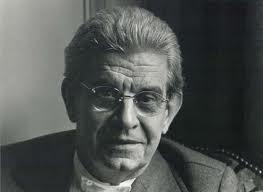To say that Lacan’s “The Instance of the Letter in the Unconscious, or Reason, Since Freud” is somewhat of a difficult read would be a gross understatement. Those not versed in the fundamentals of psychoanalysis or Freudian Psychology would most definitely have a hard time in attempting to understand the complexities of Lacan’s discourse. My attempt to analyze Lacan’s work would do no justice as I find some of his concepts too abstract to grasp. However, for the sake of some casual blogging, I will attempt to shed light on some of the aspects that I believe Lacan was attempting to convey.
In the most general of analyses, I do believe that what Lacan was generally trying to say was that language exists in our subconscious and that through speech we are able to reflect on the world in our own subjective manner. He goes on to add that the development of speech is the beginning of the symbolic order of the universe. Put more clearly, as we reach the age in which we are able to speak, the language present in our unconscious lends itself to speech, allowing us to subjectively see the world and make sense out of it. I speculate that maybe this is why as human beings we are always striving to confirm the existence of an established order in the universe. It can sometimes be quite difficult to accept the notions of randomness and obscurity when lending interpretation to the events of our lives; order gives birth to meaning and in doing so, affirms our place in the universe. Lacan further emphasizes this point in his explanation of the signifier and the signified, in which he places primacy to the signifier. I think what he is trying to say here is that by establishing the algorithm signifier/signified, the process of signification can take place. That is, the world is composed of signs that have no inherent meaning attached to them. Instead, they [signs] garner meaning through the difference between other signs, a process that is ascribed via language. This is exactly how metaphor serves to invoke a greater meaning/lesson through seemingly unrelated language. The process at work here is one of signification; one is able to draw a deeper meaning associated with language not intended to be literal. Of course, at the heart of this is the notion of subjectivity and how as subjects we help to move along the process of signification. Therefore, just as Freud had suggested that our dreams provide insight into our unconscious and our suppressed desires and true feelings, language may serve to express our notions of how we see the world and, more provocatively, harbor the inner yearnings of our unconscious.
